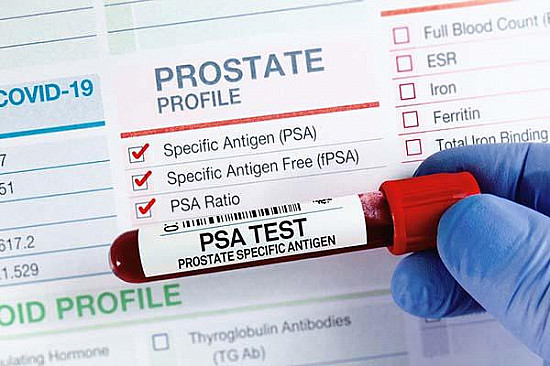Vasectomy, prostate cancer link still uncertain
By Charlie Schmidt
In the United States, about one in every seven men chooses to have a vasectomy. This surgical procedure cuts and seals off the tubes that carry sperm from the testes to the penis. Although vasectomy is a safe and effective form of contraception, it now has some men and their doctors worried.
In a report in the Journal of Clinical Oncology, a team of Harvard School of Public Health researchers linked vasectomy with a slightly elevated risk for high-grade, lethal prostate cancer. They reviewed 24 years of data from nearly 50,000 men, 12,321 of whom had had a vasectomy. Over the 24-year study, 12.37% of the men who had a vasectomy developed prostate cancer, compared to 12.13% of the men who didn’t. When the researchers looked at prostate cancer types, only high-grade tumors were different across the two groups: 1.52% of cases in the vasectomy group and 1.47% in the non-vasectomy group. The differences were statistically significant, but very small.
The Harvard authors said that men should be aware of the possible small increase in prostate cancer risk, but shouldn’t let it deter them from having a vasectomy. Media reports covering the finding, however, triggered widespread anxiety among men who either had had a vasectomy or were thinking about having one.
Scientists don’t know why vasectomy might increase the risk of developing prostate cancer. Some say it could lead to hormonal imbalances or changes in the immune system that could make cancer more likely. Experts who doubt the connection suggest that men who get a vasectomy may also get more routine medical attention, and are therefore more likely to be diagnosed with prostate cancer and other conditions.
The American Urological Association (AUA) has downplayed any link between vasectomy and prostate cancer or other conditions. After reviewing all the vasectomy literature since 1949, including the recent Harvard study, the AUA concluded that a link between vasectomy and prostate cancer is neither clinically nor statistically significant. According to the AUA, “there is no need for physicians to routinely discuss prostate cancer in their preoperative counseling of vasectomy patients.”
Dr. Marc Garnick, the Gorman Brothers Professor of Medicine at Harvard Medical School and Beth Israel Deaconess Medical Center, disagrees. “The association between prostate cancer and vasectomy could be due to chance, but the final word is not in yet,” he says. “At a minimum, the data should be placed into the conversation so that men can be allowed to make an informed choice in light of these conflicting data.”
About the Author
Disclaimer:
As a service to our readers, Harvard Health Publishing provides access to our library of archived content. Please note the date of last review or update on all articles.
No content on this site, regardless of date, should ever be used as a substitute for direct medical advice from your doctor or other qualified clinician.
















